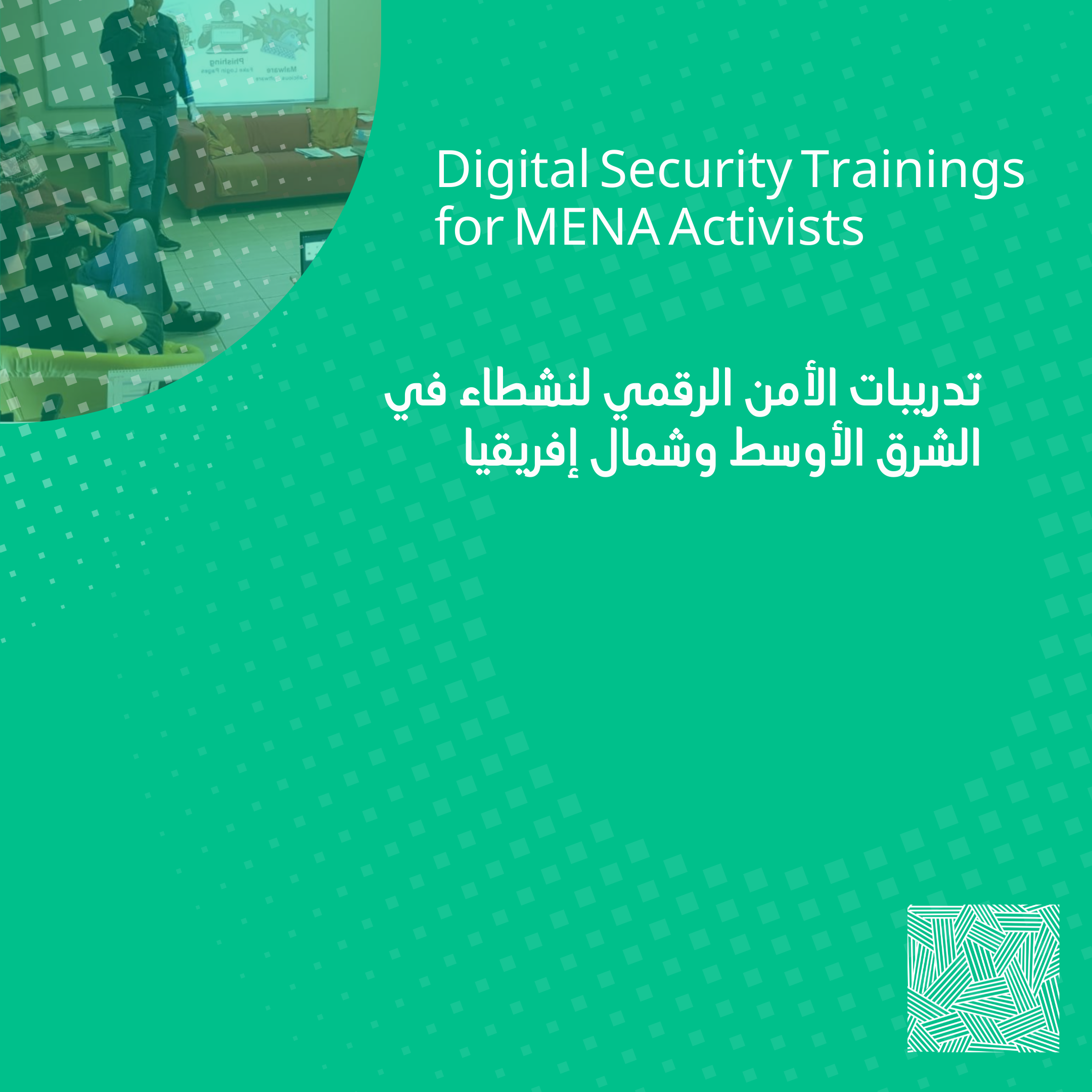
As technology becomes increasingly fundamental to the work of many human rights defenders (HRDs) in the MENA region, digital threats have also increased to human rights defenders. Four pilot pieces of training addressed the digital risks, and ways for otherwise technologically proficient human rights defenders and CSOs to defend against these threats. The digital security training explored digital risk assessment, protection of data, devices security, account lock-down, and communications privacy. In addition, there was a session on sharing information effectively and safely with communities in places such as Egypt and Gulf countries. The training wass the start of a three-year plan to build the capacity of digital security trainers in the MENA. ToT candidates were carefully selected to ensure they have the time, computer experience, inclination, commitment, and operational support to have a successful experience. Attendees participated in a five-day TOT training with the goal of empowering and increasing digital security trainers’ understanding of the usability challenges tool developers face in the design and deployment of their products.
Results
The digital security peer to peer pro bono trainings demonstrated an increasing demand for digital security skills and a significant impact of the program on the local communities varying from teaching digital security basics to young girls in rural Morocco, safeguarding journalists and HRDs’ work in Mauritania, training lawyers and CSOs in bolstering their own digital security in Tunisia, and to improve the skills of civil society in Algeria, Iraq, Egypt, Palestine, and Jordan.
Challenges
The Middle East and North African (MENA) region’s use of ICT increased since the Arab uprisings, the growth of access and use of ICT in the MENA provided resources for protesters, activists and citizens to influence social and political agendas. Human Rights Defenders in the region are also using social media, online petitions, and crowdsourcing platforms to advocate, raise awareness and fight for different rights and freedoms. Despite this use, the MENA region is among the world’s most unsafe regions for HRDs, civil activists, and journalists. These activists often find themselves in situations of high risk both physically and virtually. To combat the violations of these activists’ rights and freedoms and the shrinking of the civic spaces where they can continue to work. There is a need to increase the number of digital safety trainers and practitioners within the region because there is a need to raise awareness and teach skills to best respond to threats when they arise.
Why is this innovative
The innovation in the digital security pieces of training lies in the approach through which they have been implemented and which consisted of a demand-driven innovation through the local communities and a process of peer-to-peer learning. Once the hub’s digital security pool of trainers have been trained through the ToTs. They started training their community members and peers.
Other tools
Peer-to-Peer learning